How Much Do I Feed a 50lb 5 Month Old Puppycom
Vet Approved Puppy Feeding Guide
These are exciting times! As you prepare for your new family member and all the fun times ahead, many of your questions will involve feeding time. Feeding is a crucial factor in your pup's current and future health. As puppies are growing, they require different quantities and nutrients than adult dogs, getting it right will allow them to develop in the healthiest way possible. To help you find your way, we consulted our team of veterinarians to prepare this puppy feeding guide—but first, remember to follow you veterinarian's advice.
How Much to Feed a Puppy
One of the most common questions new puppy parents ask is how much food should a puppy eat? Puppies are growing dogs, so they require a larger volume of food than their adult counterparts. Feeding quantities actually reduce as they grow older—the same dog may eat 40 oz. a day as a puppy and 30 oz. in adulthood. Surprising, right? Think of it as feeding for the future, rather than the size they are today. When researching how much should a puppy eat, there are different factors to consider including estimated weight at maturity, age, activity level and condition.
How much food should I feed my puppy? Follow the steps below to calculate feeding quantities manually or skip forward to the calculator to avoid the math!
- Find your puppy's estimated adult weight
- Determine their daily calorie intake using the puppy feeding chart
- See food label for "calories per serving" to calculate the quantity needed to meet daily calories
- Use the meal frequency chart to determine how many meals your puppy needs a day
- Divide the weight of food calculated in step 3 by the number of meals in step 4
When you're calculating how much do you feed a puppy, always seek the advice of your veterinarian on:
- Accounting for your puppy's activity level—active dogs require more calories, sedentary dogs, less.
- Considering your puppy's condition—underweight puppies require more calories and vice-versa.
Calculate the Easy Way
Our JustFoodForDogs puppy feeding calculator is the easiest way to determine how much to feed a puppy by weight. Answer the simple questions, select Puppy Health as your goal and the calculator will make daily feeding recommendations for your pup! Results include:
- Calories per day
- Best recipes for your dog
- Number of ounces/cups per day, per recipe.
Even if you plan carefully, don't forget to monitor your dog's growth and adjust as needed. You can return to the calculator as often as you like!
Puppy feeding chart by weight:
This chart is designed to help you calculate feeding of all food types, however, we do recommend feeding a fresh, proven healthy diet that's formulated specifically for puppies. This will provide them with the highest-quality nutrients to support their long-term growth and overall health.
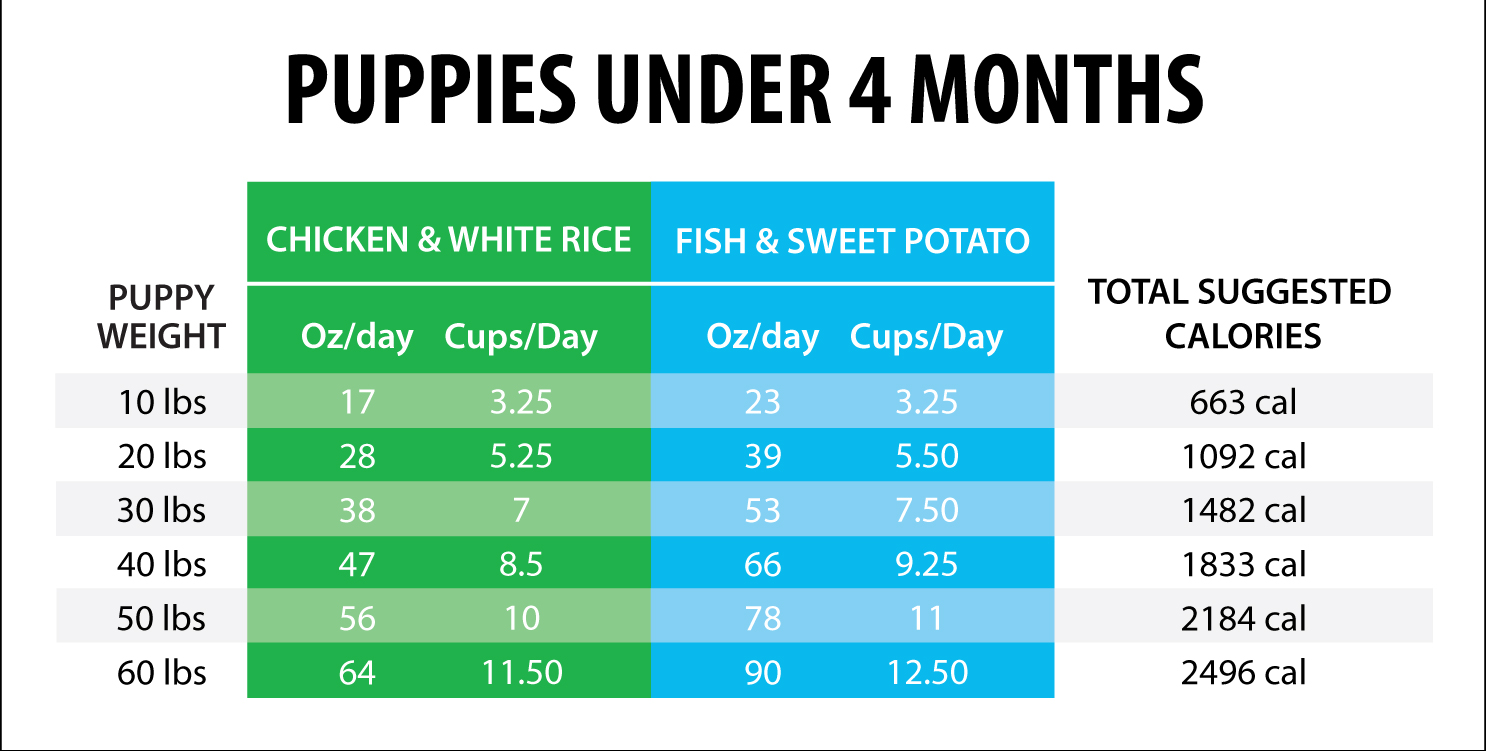
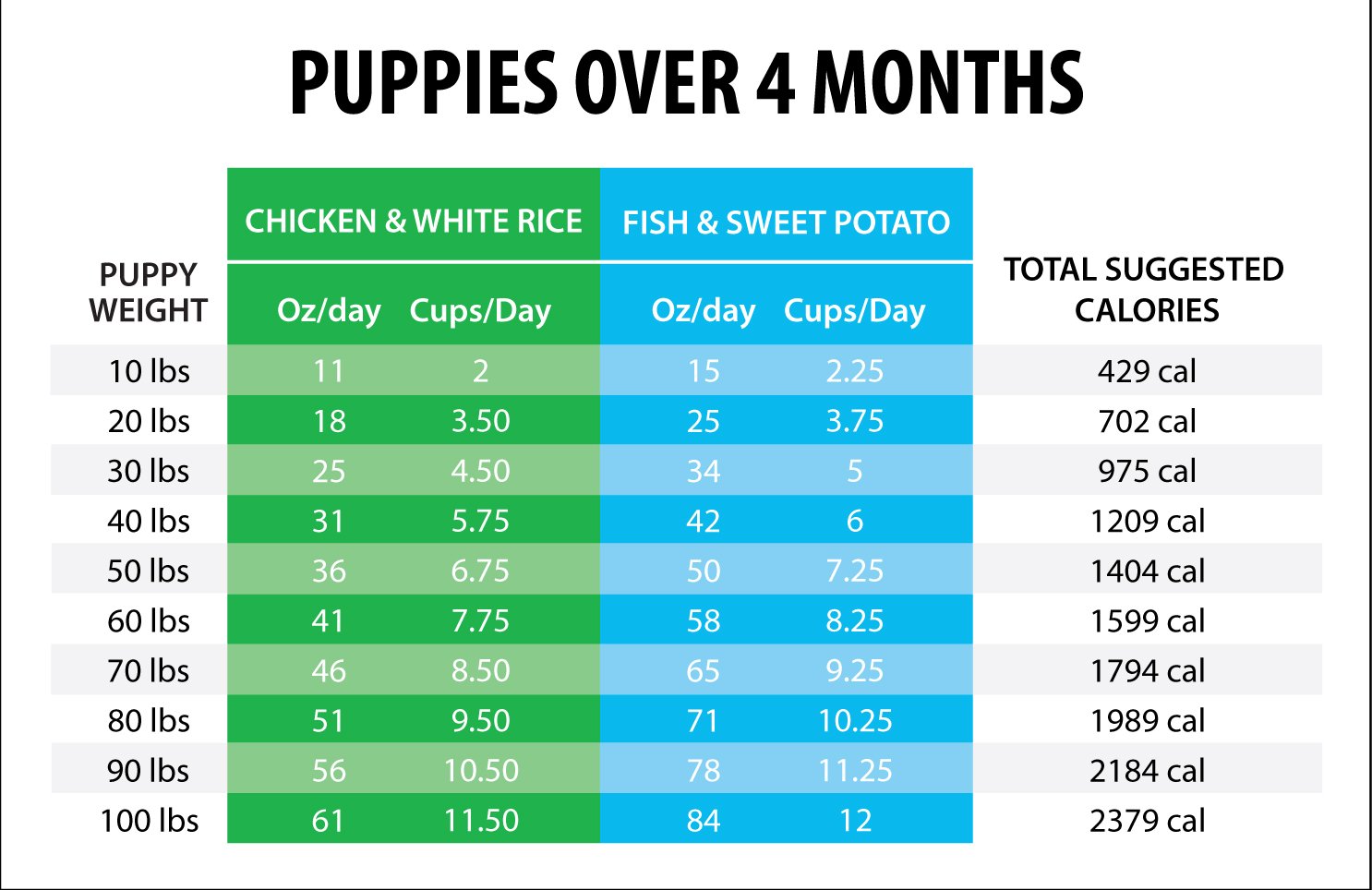
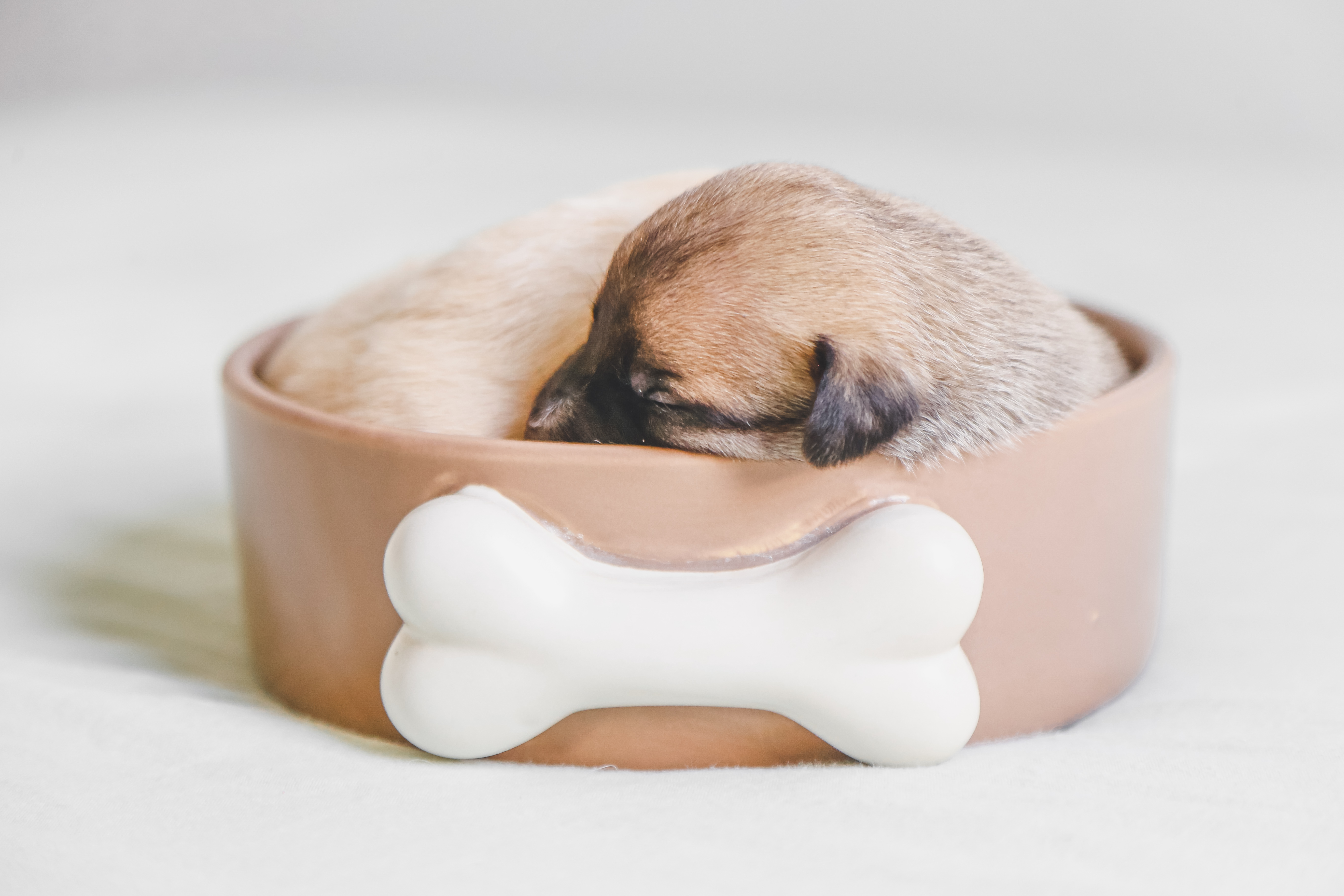
How Often Should Puppies Eat?
How often should you feed a puppy will depend on their current age and their estimated age of maturity
When considering how often should I feed my puppy, it's good to know that although puppies require a higher caloric intake, it is best to feed them smaller meals, multiple times a day until they become adults. This eases digestion and helps pups keep their energy levels steady throughout the day.
How many times should I feed my puppy?
You can calculate your pup's ideal meal feeding frequency using the chart below. Little and often is the key, as feeding them all their food in one meal can result in bloating, slower digestion and general discomfort.
Once your puppy is weaned (between 3 and 6 weeks) and has transitioned to solid food, it is best to feed them 4 times a day from ages 6 - 12 weeks.
When your puppy is between 3 - 6 months old, reduce meals to 3 times a day. For ages 6 - 12 months, you can begin feeding them twice a day.
How Many Times a Day Do You Feed a Puppy?
When to Feed a Puppy
Structure is an important element in your pup's education, so setting a solid puppy routine right from the start creates a strong foundation for you to build on together. When it comes to feeding, developing a puppy daily schedule routine is simple, consistency is key.
When should I feed my puppy?
The ideal time to feed your puppy is between 7 am and 5 pm. Feeding the last meal by 5 pm allows them enough time to digest and eliminate before bedtime, reducing the risk of nighttime accidents.
Using the chart above, calculate the number of meals your pup requires daily and distribute them evenly between 7 am – 5 pm. Stick to the same feeding times each day, this will help reinforce the routine.
What Food Can Puppies Eat?
If you're wondering can puppies eat dog food, or can puppies eat regular dog food? These are great questions! Puppies and their adult counterparts have different nutritional needs, so it's important to ensure your pup is getting the balance of nutrients they require to grow into healthy and strong adults. By choosing food that is specially formulated for puppies and nutritionally balanced for long-term feeding—like this Chicken & White Rice Recipe that's high in calcium and phosphorus—you'll be giving your pup the head start they need.
Can puppies have treats?
Yes! Treats are important and can be used for training but all in moderation—and always check with your vet or trainer first.
When looking for good treats for puppies use these tips:
- Read the label: Nutrition is a defining factor in your puppy's future health and happiness, so it's essential to know exactly what goes into their food.
- Keep it natural: Treats made using human-edible, whole-food ingredients are the healthiest puppy treats. Checking labels is the best way to avoid unnatural ingredients and preservatives, as well as any unwholesome treats that market themselves as healthy.
- Think soft: The teeth of young puppies are not fully developed, so soft bite-sized treats for smaller mouths are recommended.
- Tailor treats to your pup: When choosing a snack, consider their age, weight, allergies, physical condition and activity level.
- Moderation: Over-snacking can lead to weight and other health issues, so treat wisely. Snacks should account for a maximum of 5% of your puppy's daily calories, e.g. if your puppy eats 400 kcals per day, then only 20 kcals should come from treats.
Opt for safe fruits and vegetables or other low-calorie snacks.
If your puppy suffers from medical conditions, check in with your veterinarian to find the treats that work best for their health.
Healthy Snacks for Puppies
How to Transition your Puppy to New Food
Transitioning from mother's milk or formula to solid food is a gradual process.
Breeders start puppies on a mix of solid food and mother's milk as early as 3 weeks. Using the same high-quality food that the mother is fed can aid the transition. This is blended with a puppy milk replacer and warm water.
For orphaned puppies, weaning begins around 3-4 weeks of age. Small amounts of high-quality soft food—formulated to support healthy growth—are added to supplement their milk formula, this transitions pups gradually to solid food by 5-6 weeks of age.
When can puppies eat wet food?
When to start feeding puppies wet food will depend on the weaning process outlined above. Puppies usually transition to solid food at around 3-4 weeks of age as they start to need more calories than they can obtain from their mother's milk or milk replacer. Most puppies are weaned and enjoying a solid food diet by around 6 weeks of age.
How to Keep a Puppy Healthy with Healthy Puppy Food
Feeding your puppy a fresh, proven healthy diet that's formulated specifically for very young dogs will provide them with the high-quality nutrients they need to support their overall health and long-term growth. Bear in mind that puppies develop at different speeds, so we always recommend asking your veterinarian for advice on assessing your puppy's body condition score.
- Underweight
- Ideal Weight
- Overweight
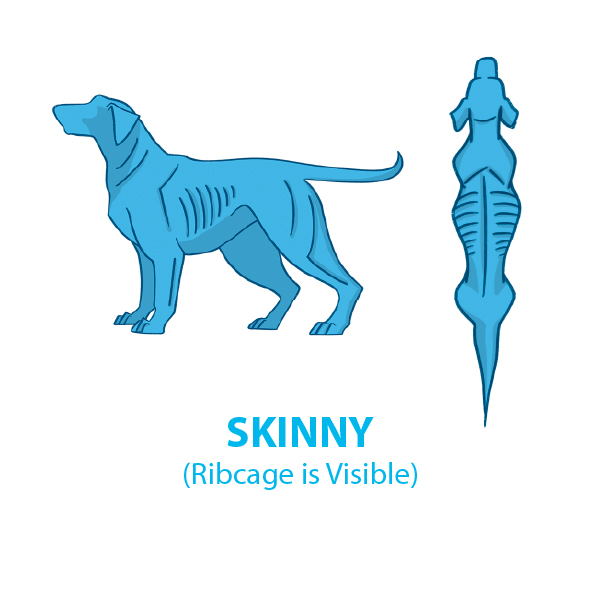
How to tell if a puppy is underweight?
On an underweight puppy, the ribs and hip bones are clearly visible, jutting out when viewed from above.
Stopping a puppy losing weight will depend on various factors. Check that you are feeding your puppy:
- A nutrient-rich and balanced diet, formulated for puppies and promote their healthy growth
- The recommended number of daily calories for their estimated adult weight, activity level and breed—extremely active dogs will require a higher-calorie diet.
- Following the puppy-feeding guidelines given on the food label
If your pup is still below average for their breed, then we recommended seeking advice from your veterinarian to rule out any underlying issues.
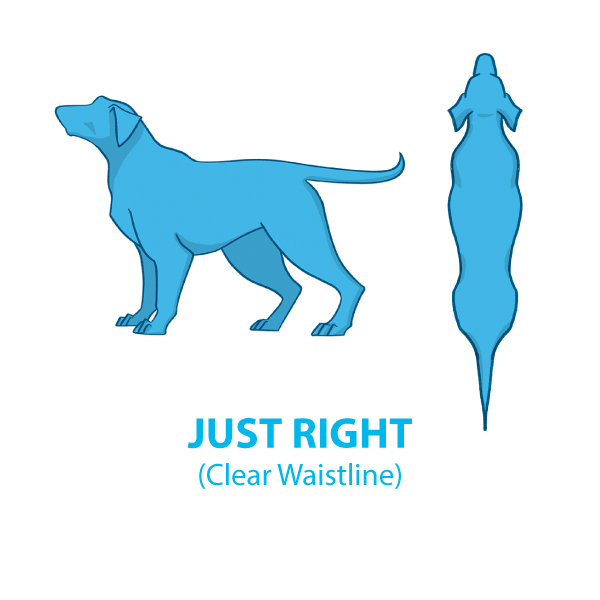
Ideal Weight (Just Right!)
If your pup is at their ideal weight, their ribs can be seen and felt but do not protrude, their belly tucks up and they have a visible waistline.
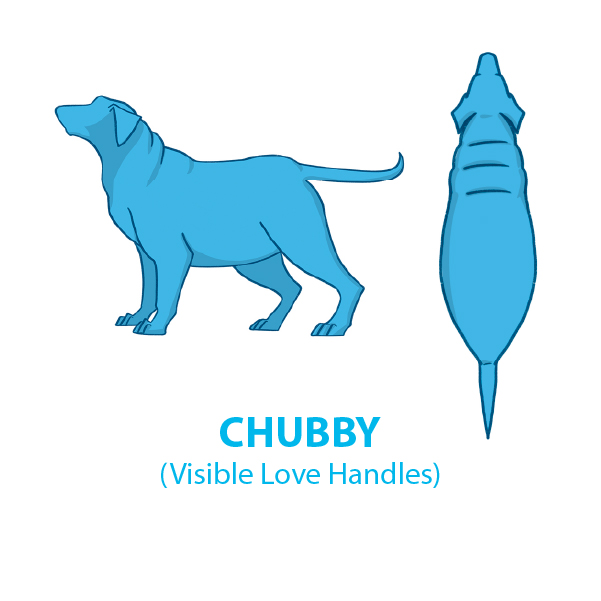
How to tell if your puppy is overweight?
An overweight puppy will have a rounded stomach with no definition in the ribs or waistline.
It's important to note that unneutered puppies don't tend to gain excess weight but you should be monitoring for weight gain after neutering. Ask your vet for advice if this is a concern.
Puppy Weight Calculator
If you are looking for a puppy size estimator, we have provided you with a 'How big will my puppy get?' calculator below.
- Measure your puppy's weight in pounds at the following age:
- Small breeds -12 weeks
- Medium breeds - 16 weeks
- Large breeds - 20 weeks
- Divide weight by their age in weeks
- Multiply by 52
This will give you a rough prediction of your pup's estimated adult weight. As puppy growth is not linear, results will vary depending on growth spurts, sex, breed and overall health.
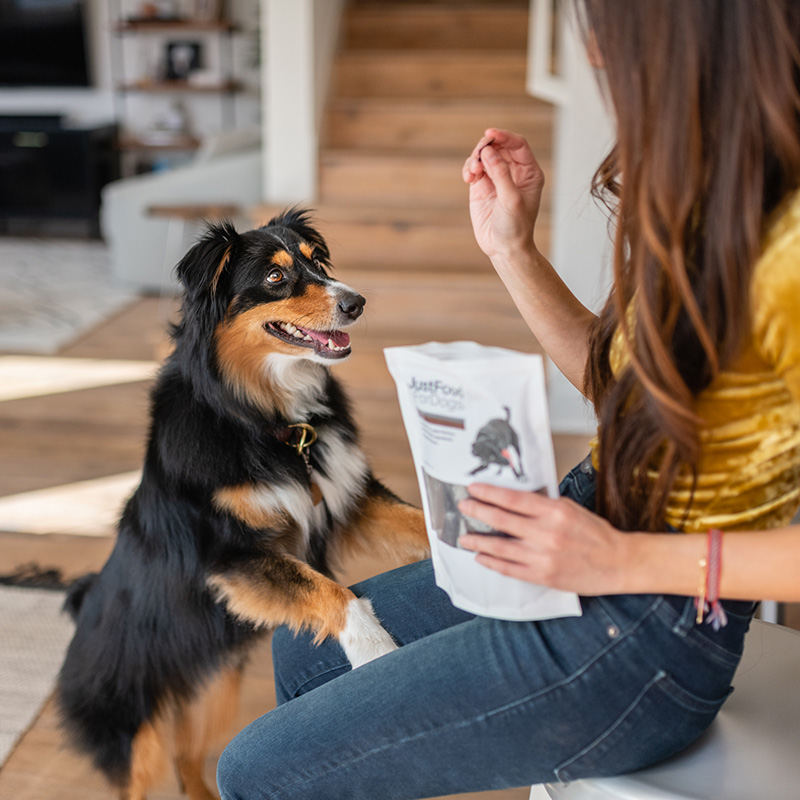
When to Stop Feeding Puppy Food
This depends on two factors:
- Your puppy's age
- The type of food they are fed
Your puppy's nutritional needs change as they grow into an adult, so other than adapting nutrition, you will also need to decrease their calorie and protein intake as they become fully developed.
Some food, like our Chicken & White Rice and Fish & Sweet Potato Recipes, is specially formulated to provide your dog with a complete and balanced diet for all life stages—from puppy to adulthood. In this case you can simply reduce food intake without having to change their diet altogether.
If you are moving from a puppy-specific diet to adult nutrition, then the transition from puppy food to dog food should be a gradual process that happens as they approach maturity. But when is a puppy considered a dog?
Puppies mature at different stages, depending on the size of their breed. Here is a broad overview to help you determine when your puppy is considered mature:
- Small breeds [<20 lbs.] = 6-12 months
- Medium breeds [20-50 lbs.] = 6-12 months
- Large breeds [50-98 lbs.] = 10-16 months
- Giant breeds [>99 lbs.] = 18-24 months
A gradual transition from puppy to adult food is the key to success. Switching progressively is much kinder on your pup's stomach.
To make the transition, mix your puppy's current food with their new adult food, gradually decreasing the amount of puppy food and increasing the amount of adult food over a period of 7 days.
This is an approximate guide to when to stop feeding dog puppy food. Always consult your veterinarian for tailored advice on changing your puppy's diet.
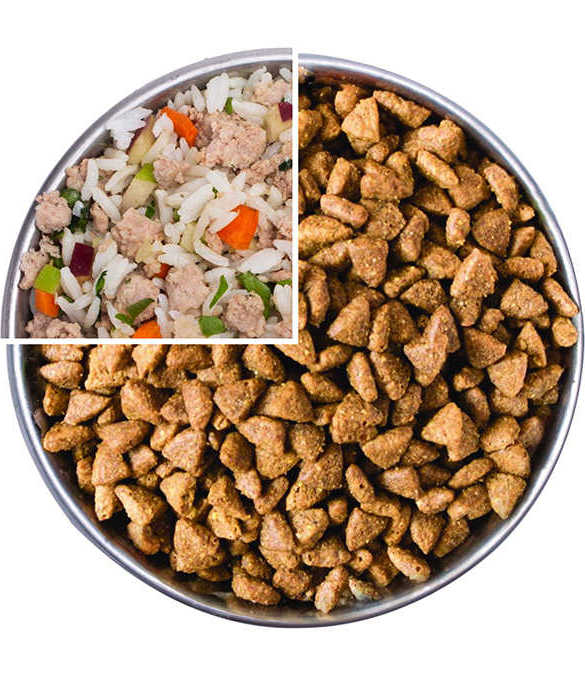
DAYS 1-3
25% JUSTFOODFORDOGS
75% CURRENT FOOD
Replace 25% of your dog's current food with JustFoodForDogs whole food.
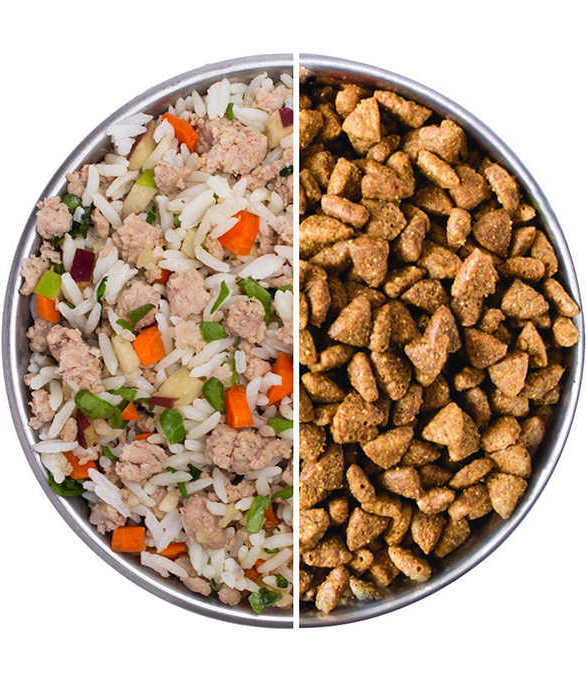
DAYS 4-7
50% JUSTFOODFORDOGS
50% CURRENT FOOD
Replace 50% of your dog's current food with JustFoodForDogs whole food.
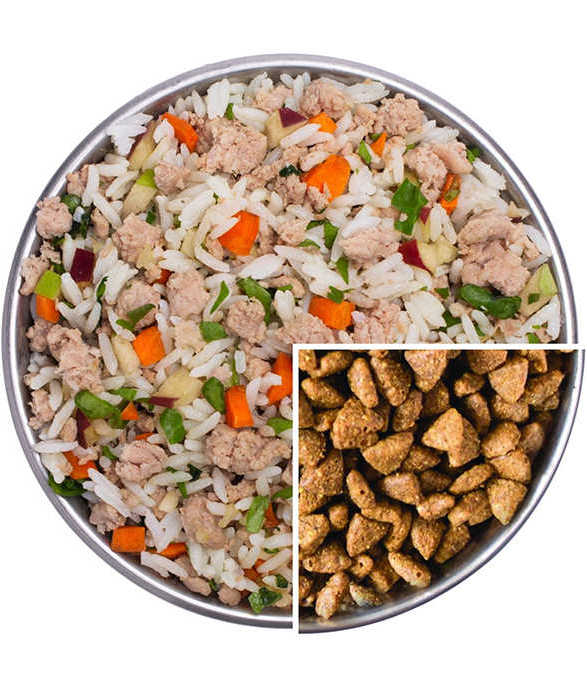
DAYS 8-10
75% JUSTFOODFORDOGS
25% CURRENT FOOD
Replace 75% of your dog's current food with JustFoodForDogs whole food.
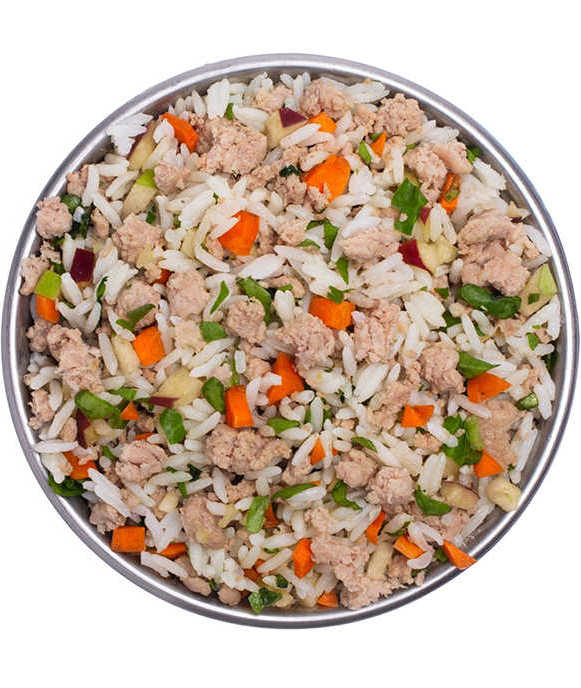
DAY 11
100% JUSTFOODFORDOGS
Transition is complete.
williamsmucatinter.blogspot.com
Source: https://www.justfoodfordogs.com/how-much-to-feed-a-puppy.html
Post a Comment for "How Much Do I Feed a 50lb 5 Month Old Puppycom"